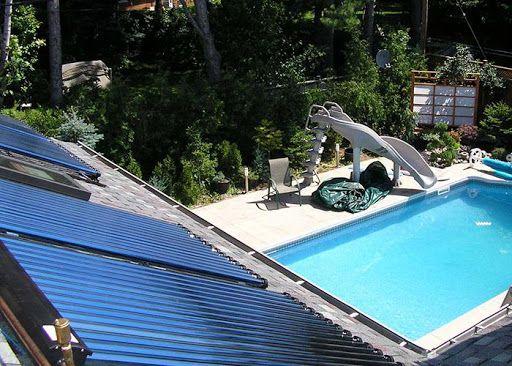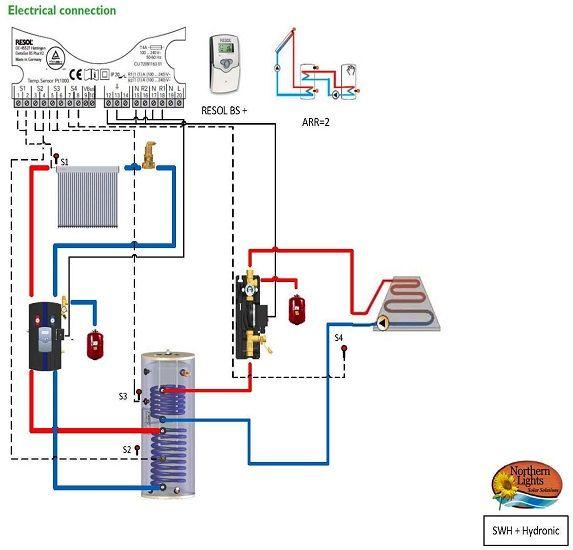Are you looking for solar pool heaters
to enjoy an extended swimming season? If yes, then you have made a good
decision. Read the post and understand the benefits and tips to find
the right solar pool heating system.
Let’s discuss the benefits of solar pool heaters.
Maximum Enjoyment –
You’ve
installed a pool in your backyard to use at your convenience. Now you
can harness the solar energy for heating your pool to extend your
swimming season and increase the enjoyment of everyone.
A solar pool heating system
keeps your pool warm even during cold months and cool during the
hottest time of the year. Hence, you can spend quality time with your
family and friends while taking a refreshing dip in your pool.

Eco-Friendly –
Traditional
pool heating systems use natural gas or electricity for heating up. But
solar pool heaters use the natural energy from the sun. The renewable
energy source is eco-friendly and free of pollution. So your solar pool
heater won’t produce carbon dioxide, pollution, or consume fossil fuels.
Affordability –
Solar
pool heaters are considered affordable solar-powered systems available
on the market. The sun is a free energy source that provides enormous
renewable energy to operate your pool heater. Compared to traditional
gas heating systems, a solar pool heater is incredibly energy efficient
and affordable.
Low Maintenance –
Solar
pool heating systems are durable and require less maintenance than
their counterparts. The standard solar pool heating system works
effectively for 15-20 years, double the average useful life of a
traditional heating system. Maintain a good chemical balance in your
pool and check the filter system regularly to keep your solar heating
system working correctly.
Finding the Right Solar Pool Heating System –
Read
on the steps to find the solar pool heating kit allowing you to relax
in a comfortable, warm pool year-round at lower utility costs in no
time.
Consider the pool size.
When
you’ve decided to heat a pool using solar energy, the pool water is
circulated through a solar collector to be heated by solar radiation.
However, your pool heating system will require a collector that is
65%-100% of your pool surface area. Other factors like climate and
personal preferences affect your decision.
Consider the climate condition.
Increasing
the square footage of your pool area can extend the swimming season and
make swimming possible during cooler weather. The choice is yours, and
If you want the best results, you should contact the solar system
installer, and they’ll help you determine the number of solar evacuated
tube collectors that work for you.
Consider working with a reliable solar system manufacturer.
It’s
suggested that working with a trustworthy solar system manufacturer is
perhaps the most essential step in finding the right pool heating system
for your pool. So, you should rely on Northern Lights Solar Tubs for the right solar pool heater.
When
you trust us for your pool heating requirements, we prioritize your
needs and ensure that you benefit from our professionalism, outstanding
service, and extensive years of experience. For more information about
our solar-powered systems, please contact us at +1 (800) 317-9054.



